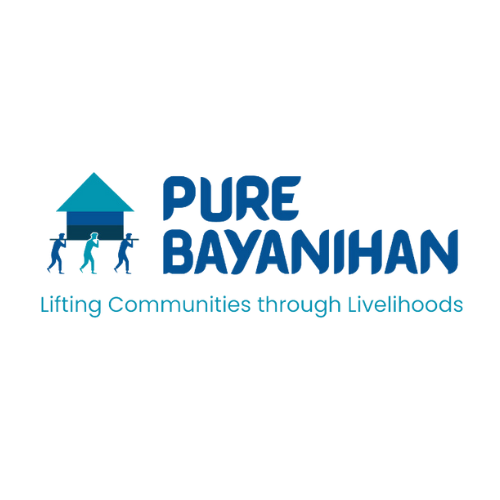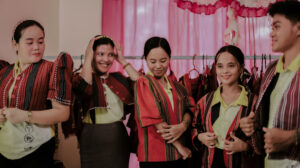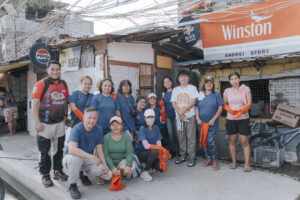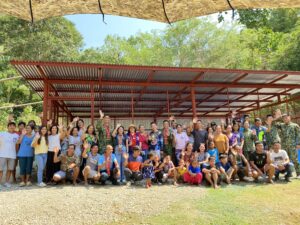This article was originally published at Manila Time’s the Sunday Times Magazine last April 4,2024. Written by Carla Bianca Ravanes-Higham. You may read the article here.
The Filipino word bayanihan (community unity) has long and deeply been embedded in our culture. It is found in the walls of our schools, told in our history books, and experienced through the many highs and lows of our nation’s story. It has been said that you can never truly know what bayanihan is until you experience it firsthand.
Though located many miles away from the Philippines, the US-based organization Pure Bayanihan had a glimpse of one of the country’s most stunning traits after years of working with talented Filipinos through Pure Incubation Ventures. Through their work with Filipinos, they witnessed firsthand the stories of many local community leaders who sacrifice their own resources to help build a better world for those around them.
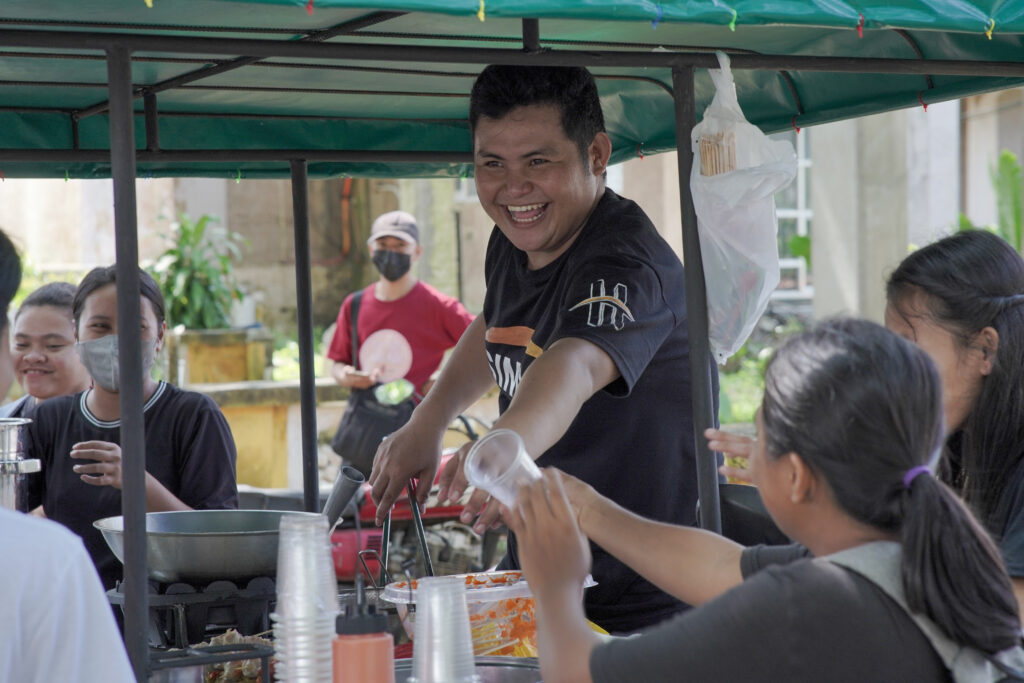
After 25 years of building award-winning companies, the leaders and members of Pure Incubation Ventures decided to use their expertise, vast network, and resources to build thriving communities and make a difference in the world, starting with the Philippines.
Pure Bayanihan founder Barry Harrigan beautifully defines what bayanihan looks like to them, “I think of bayanihan as doing something for others without expecting anything in return. I think the concept exists in a lot of cultures.
“However, I have never seen it more deeply ingrained in a culture the way it happens in the Philippines. As an American, I can only imagine it’s an island culture where help could only be found from within at the time of calamities and seemingly has been part of Philippine culture for hundreds of years.
I became fascinated by that concept as I returned to the Philippines on more than 35 trips over 10 years and witnessed the amazing resilience [of its people] as they faced earthquakes, typhoons, volcanoes, flooding and other calamities.
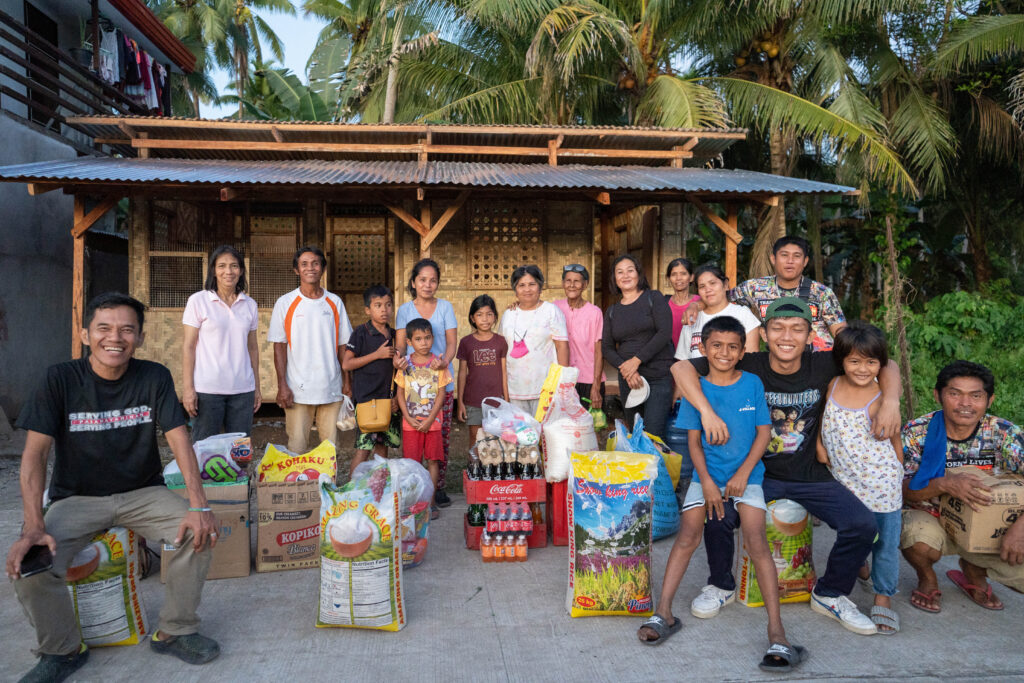
“I saw these calamities as being the cause of so much hardship, and I also saw how resilient Filipinos were in lifting themselves up after a calamity. It got me thinking that providing assistance was a very good investment. That Filipinos, with a little help, could make a big recovery from hardships and lift themselves up like a few cultures I had witnessed.
“I like the idea of being able to make an impact, and in the Philippines, I could make a big impact as volunteers would amplify the support of our donations. The fact is that some Filipinos are just one storm away from having nothing; they might also be one hand up away from getting out of nothing. So, my effort has really been about perfecting the ways in which we could give them a hand up and put them on a good track, and that’s really what Pure Bayanihan is all about.”
Today, The Sunday Times Magazine sits down with Cara Smith and the rest of the Pure Bayanihan team, including founder Barry Harrigan, to learn more about their initiative, what it means to be a genuinely nonprofit organization, and how they are making Filipinos with the strongest bayanihan spirits shine.
The Sunday Times Magazine: Please share with us what sparked the idea behind Pure Bayanihan.
Pure Bayanihan (PB): After 25 years of building award-winning companies through Pure Incubation Ventures — a 10-time Inc 5000 award winner — creating 1,000-plus global jobs and celebrating success, we now aim to use our expertise, vast networks, and resources to build successful communities and make a difference in the world.
While reminiscing at lunch one day about our past 25 years together in business, we started thinking, let’s use our success and resources and try to do something to make a difference and change people’s lives. So that’s what we did.
We have this huge network in the Philippines after working with our Philippine offices with over 1,000 Filipino colleagues. We have all of our co-workers, our friends, government contacts, business contacts, and we’ve learned a lot along the way. It really just made sense that the Philippines would be a great place to start. It gives us hope to be a positive part of change in the world and to have that opportunity. We’re just so excited, and we want lots of other people to be able to join us and be a part of that excitement.
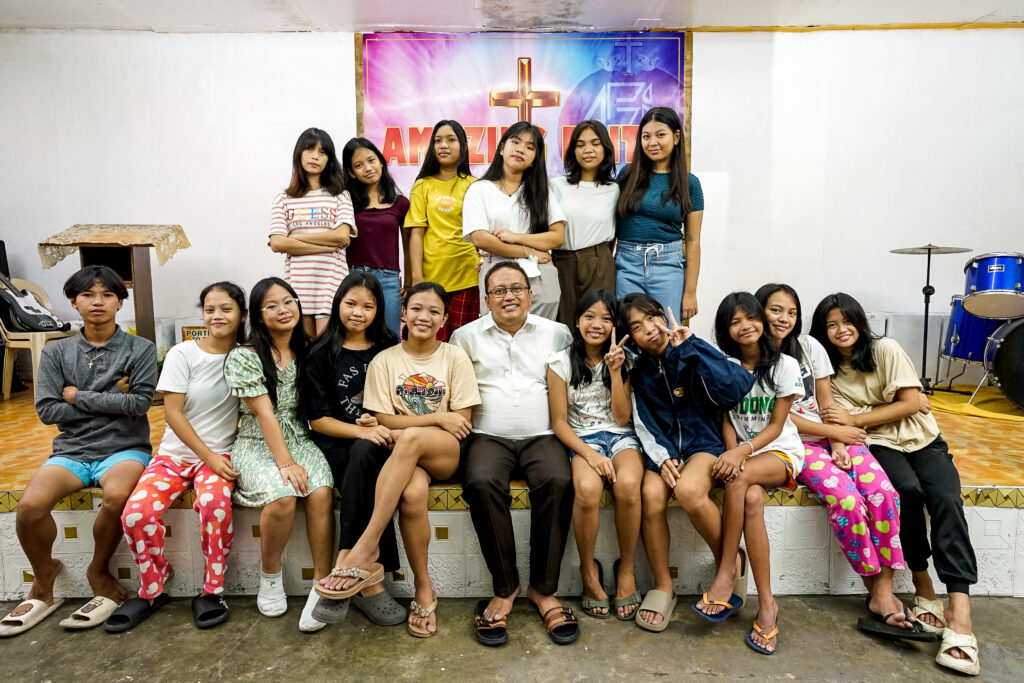
STM: What does it mean to truly be a non-profit, as Pure Bayanihan is?
PB: Being a nonprofit is what we consider to be the essence of bayanihan, doing something for others without expecting anything in return. As part of that, Pure Bayanihan, our board, and other generous donors pay all admin costs so that 100 percent of all donations can go directly to the fight against poverty and the goal of one million sustainable livelihoods.
Our mission is to create one million livelihoods for those in poverty by partnering with local communities to craft unique solutions that work best for them, all while doing so in the most financially responsible way possible.
STM: Coming from the other side of the world, how were you able to piece these bayanihan stories together and find community heroes you wanted to support?
PB: Our model of success is our network of Filipino champions. They are the ones that make it all work. It all started after Typhoon Ulysses when we couldn’t make contact with any of our employees, and then we discovered that a group of them had created this entire network of donors and leaders to get help to those affected. One person knew of someone that had a food kitchen. Someone had a contact at a church. Someone had a contact that was a doctor. And someone had a contact that had a giant truck that could get through the floods. Every day, they would collect money on Facebook, and then at the end of the day, they would send that out to all those different contacts they had, and immediately the next day, those contacts would purchase food and medicine to distribute to people in need in their areas. And that is the network model we decided to use to become a much larger nonprofit.
Those same employees are now our PH leaders overseeing the organization and making the network bigger and wider. They find amazing community leaders already doing amazing things in their communities and bring those stories to us. They vet them, work with them, and come up with the solutions that will give them sustainable solutions to empower and lift them up. Not only do we partner with community leaders, but we also work and partner with other nonprofits to find complementary ways to help people and amplify impact.
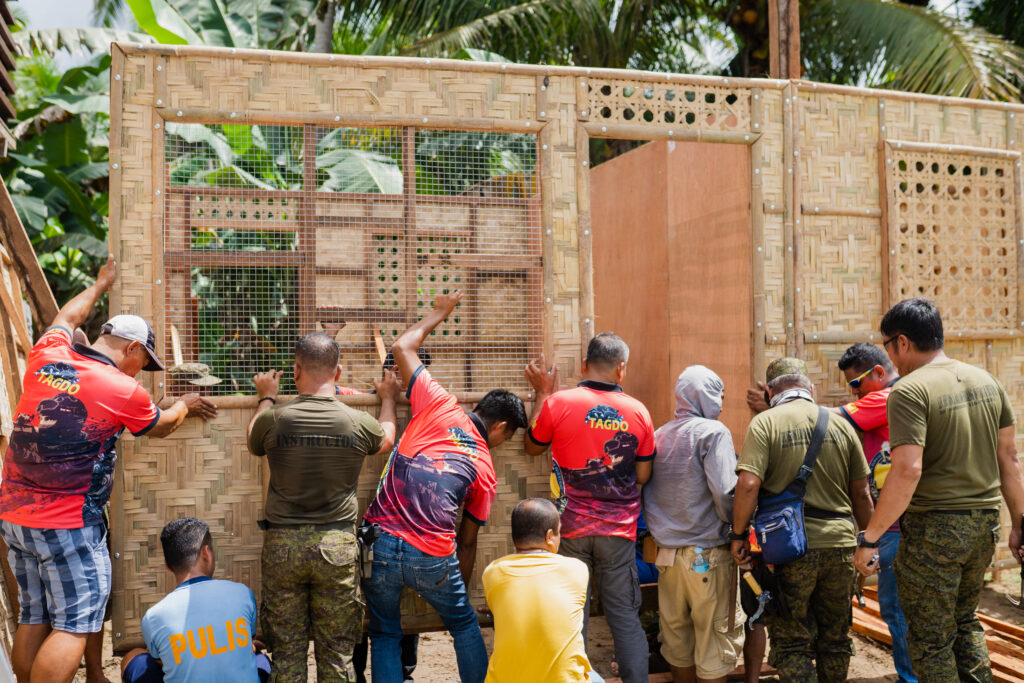
We have also partnered with local police associations, and recently, we got assistance from the Filipino Army to move a boat. So, we’ll happily take assistance to lower the cost of our projects and the offers to help are always coming from new places in the Philippines.
By working through this network, we invite the community and leaders to propose the projects that they think best fit them rather than impose our own ideas. Also, we always use a local sourcing approach, which allows us to be more efficient with resources and create more economic growth in the immediate community.
STM: Can you talk about your favorite community heroes and how they have inspired you?
PB: Oh my gosh. There are so many amazing and inspirational Filipino heroes already doing so much in their communities with almost no resources. These are the people that are the true heroes, giving their lives to those around them.
I think of the pastor in Kalapnit, Aurora, who opened his home to kids wanting to get an education, but since they live on a mountain, a six-hour walk away from the school, the pastor has let them live with him and his elderly mother, while he now sleeps outside in a hammock. He asked us to give him the supplies to build a dorm so the boys and girls could have their own quarters. He even offered to build it himself to save money.
Then there is the pastor in Navotas who is personally paying pabaon (allowance) to 46 children in poverty so that they can continue to pursue their studies. Many of these kids, despite hunger, are thriving in their studies due to his care. He asked us to come along with him and help continue and expand the pabaon.
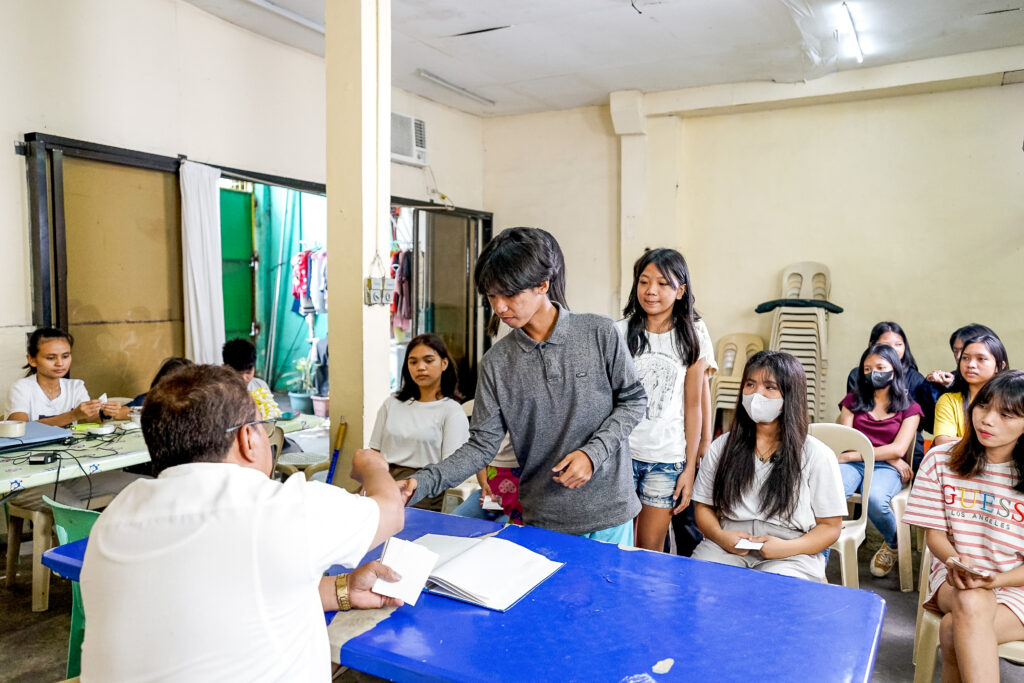
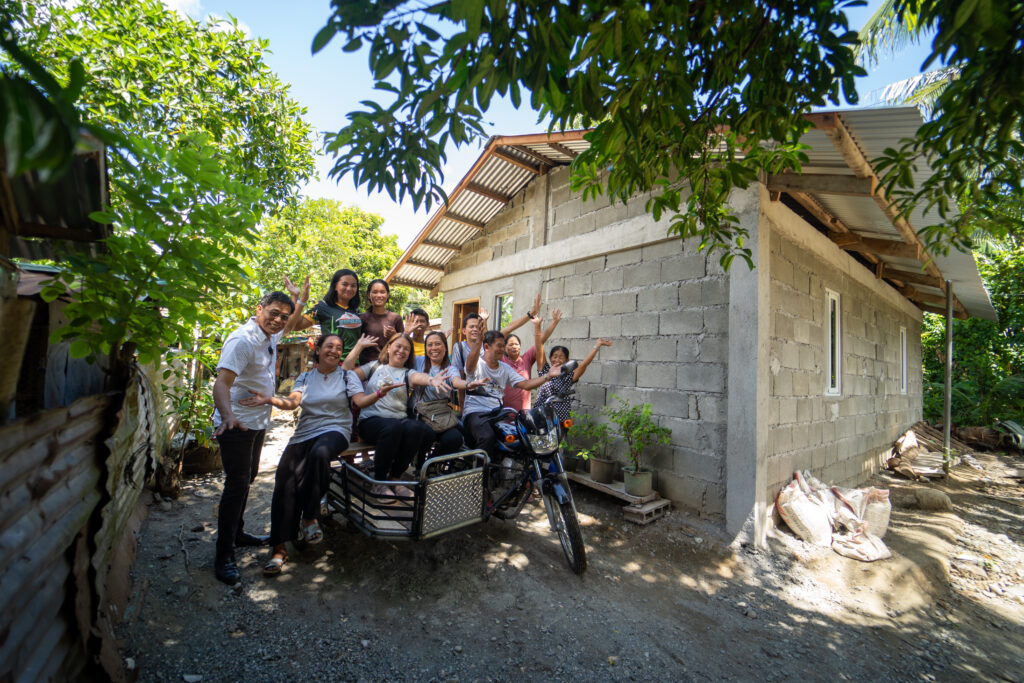
Then, there is the women’s business club of Bantayan Island. They are the wives of fishermen struggling to catch enough fish and find the market to sell to. They meet regularly to come up with business ideas, such as a dried fish business, with the help of their champion, a local social work volunteer.
Seriously, I could give you over 20 stories of community leaders and organizations helping others, including Police Wives’ clubs feeding undernourished children and creating community gardens, a pastora (lady pastor) in Pangasinan creating goat and pig raising programs, a public servant to the Aeta tribe helping them create sustainable farming, and numerous other barangay leaders, police, pastors, social workers, and business people working as shining examples of the bayanihan spirit.
STM: How do you choose your community heroes?
PB: All community heroes are nominated by Filipino partner advocates who know about these respected heroes through their church missions, university contacts, or personal contacts. Since we have 1000 former and current employees, we are always accepting new nominations for communities and their heroes, which we then vet to ensure that they fit our mission and guidelines.”
STM: What have you learned about Filipinos since organizing Pure Bayanihan? And what is it about the bayanihan spirit that continues to inspire the team?
PB: My Filipino colleagues have taught me many beautiful lessons. They are resilient, generous, kind, and always willing to come together to help someone in need. They truly live out the spirit of bayanihan. This inspires all of us around the globe to follow in their footsteps and join the bayanihan spirit of giving and lifting up others, without expecting anything in return.
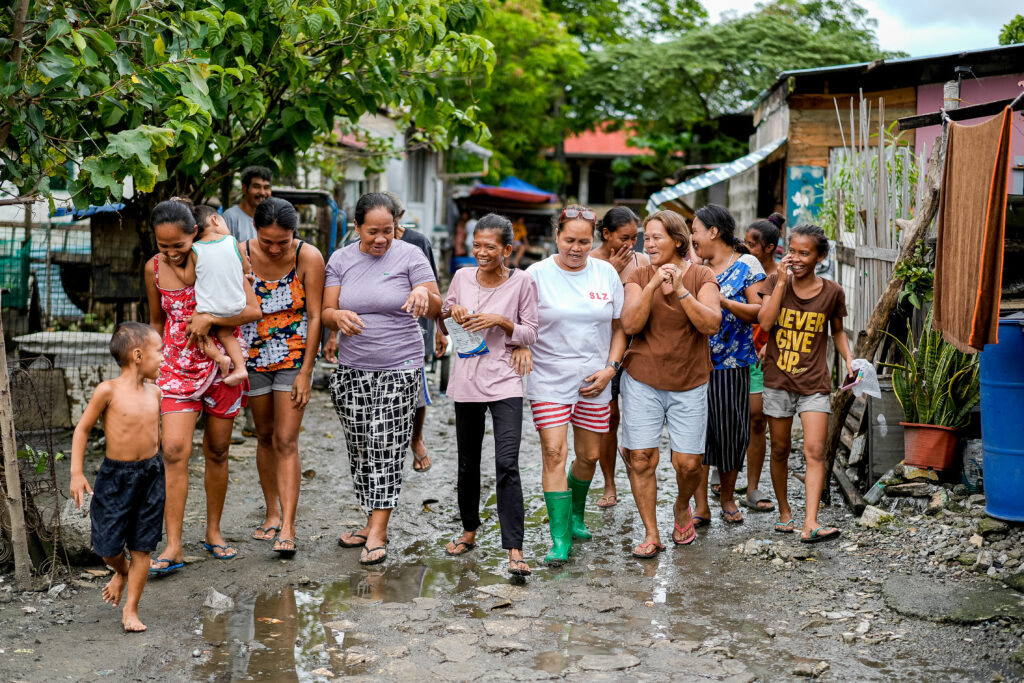
STM: What is Pure Bayanihan’s next immediate goal?
PB: One million livelihoods! Our goal is to gain more momentum on the road to one million sustainable livelihoods.
Filipinos are resilient; they don’t need a handout but a hand up. Our livelihoods aim to empower each family and community to become sustainable on their own, to the point that they, too, can one day join the bayanihan and “pay it forward” to another family in need.
One example of this was a project where we gave pairs of goats, and the recipients decided to give their first-born baby goat to another family in need.
Currently, we are a US-based 501c3 public nonprofit, and we have recently applied to become a PH entity. That application is still in process. Beyond that, we will also start the long process of becoming a PH tax-exempt organization.
STM: How can fellow Filipinos help?
PB: There are so many ways Filipinos can help. We are looking for volunteers, donors, sponsors, and partner advocates to nominate new communities and project ideas to us. Feel free to email us at info@purebayanihan.org or log on to https://purebayanihan.org/ for more information.
We are also looking for anyone to help spread the word about who we are and to help with donations and fundraising so we can create more and more livelihoods.
